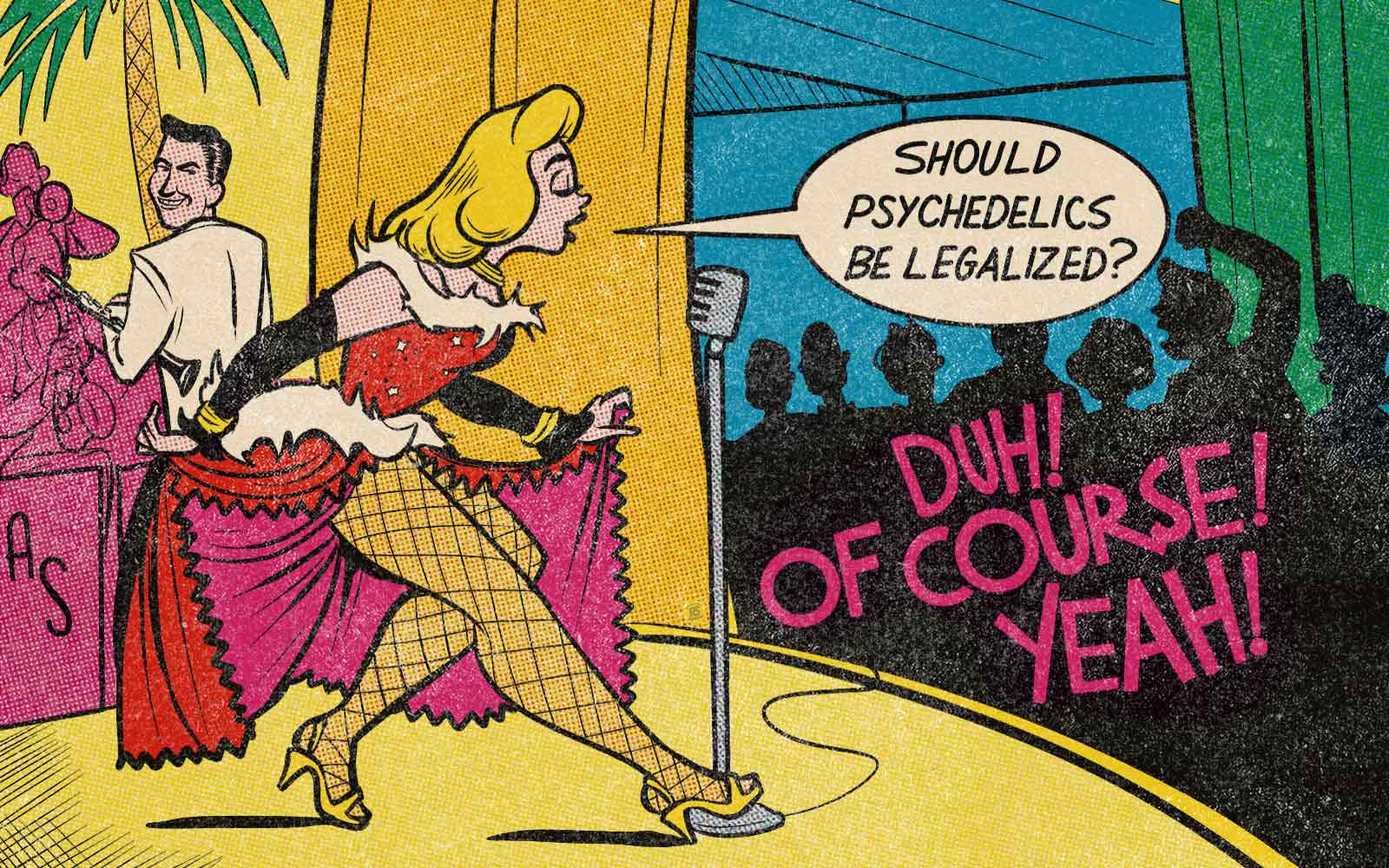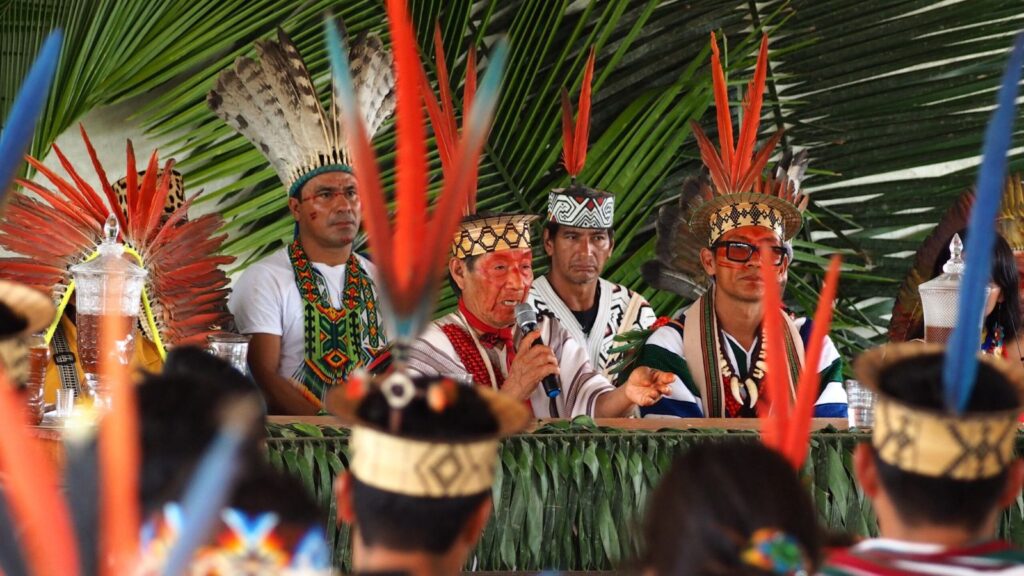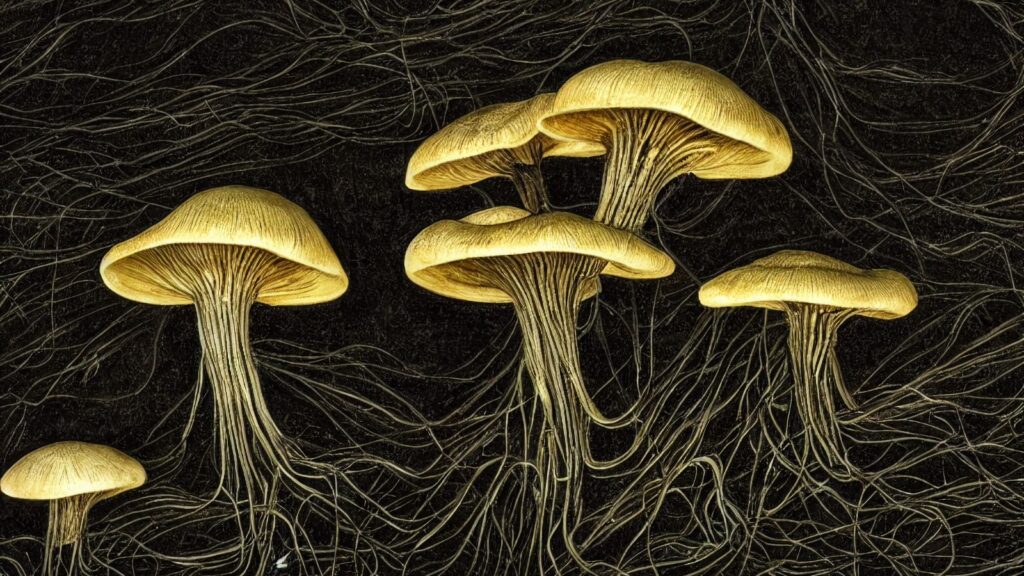From the jungles of the Amazon to the desert expanses of the American southwest, indigenous cultures have long harnessed the power of psychedelic substances for their healing and spiritual properties. Today, western cultures are re-investigating the potential benefits of psychedelics, after the decades-long hiatus following the mass illegalization and criminalization of drug use at the end of the 1960s. As psychedelic researchers still wade through legal obstacles and people continue to face criminal charges for psychedelic possession, it’s natural to wonder what would happen if we legalize all psychedelics. Let’s take a look at the complexities surrounding the question of legalization and what a world with legal psychedelics could look like.
Difference Between Legalized and Decriminalized
When discussing the complete legalization of psychedelics, it is important to understand the nuances of legalization versus decriminalization.
Legalization removes all penalties for possession or use of a substance. With legalization comes regulation of how a substance can be manufactured, bought and sold. Alcohol is an example of a legal substance. Governments regulate the manufacturing and sale of alcohol as well as place restrictions on citizen’s alcohol use — age restrictions, licenses to sell and in some cases penalties for public consumption or intoxication. A world where all psychedelics are legal would mean that individuals could use and possess psychedelics without fear of legal repercussions. However, there would be a new component of government regulation.
Decriminalization removes criminal penalties and charges for the use or possession of a substance. Possession and use of a decriminalized substance are technically illegal and people can still face civil penalties, such as compensations to the government in the form of fines or court-ordered behavior. If all psychedelics were decriminalized, people caught with magic mushrooms or LSD could deal with their civil penalty without the consequences of a criminal conviction: reduced access to housing and employment as well as the overall psychological toll of incarceration.
Decriminalization is often a precursor to legalization but the two models differ greatly in terms of how they could change the landscape of psychedelic use. So what does it look like now? Let’s take a look at the current legal structures in place surrounding psychedelics.
Overview on the Current Legalities Surrounding Psychedelics
Laws surrounding psychedelics vary greatly from country to country but in recent years more legislation passes or advocates for decriminalization and legalization. Incentivized by an epidemic of intravenous drug use, in 2001 Portugal set out to implement some of the most radical drug policies of its time: the decriminalization of possession and consumption of all illegal substances.
If caught with illegal substances, Portuguese citizens face a warning, fine, or referral to a harm reduction program. Two decades later, rates of HIV infections and opioid overdoses are much lower for intravenous drug users and less harmful psychedelic substances — like LSD — are widely available. Decriminalization also helped change public perception of substance use. When people suffering from substance abuse disorders were no longer seen as junkies that police throw in jail, the public’s ideas about drugs, including psychedelics, began to change.
In 2020, Oregon passed two measures for the legalization of psilocybin therapies and the decriminalization of all drug possession. Much like Portugal’s drug policy, this was spurred by goals of harm reduction and to help shift public perception of substance abuse. Psilocybin is already legal and decriminalized in some European and South American countries and, following Oregon’s lead, increasingly more cities in the United States.
Ayahuasca is legal in many South American countries and visitors are free to travel and partake in the traditional ceremonies. Native people’s sacred psychedelic practices are respected in many countries that have yet to legalize psychedelics, and native groups are granted exemptions from criminal charges for their psychedelic possession. Laws and regulations are subject to change, and if you are planning to take a trip abroad, checking up on the local drug laws is always advisable.
What Would Legalizing All Psychedelics Look Like?
When discussing the legalization of all psychedelics, it’s important to look at all of the ways people use psychedelics. A medical model of legalized psychedelics would allow researchers to explore the potential of psychedelic treatments but would also greatly limit the individual’s access to psychedelics. People use psychedelics for many reasons, some for treatment and relief and others for recreation: legal psychedelics would change who has access to the more regulated psychedelics.
Another possibility for psychedelic legalization is licensed legalization. There are other behaviors like operating a vehicle that requires a licensure process. This could translate to legal psychedelics: people apply for a license to grow or use certain substances and the license can be revoked if abused. This also fits into the medical model, where patients could be prescribed psychedelics.
As more research explores the benefits of psychedelic treatments for a variety of health conditions, the legalization of psychedelics for medicinal purposes is a popular argument.
Benefits of Legalizing Everything
Proponents of legalization highlight the benefits of access to safe psychedelic substances. The decriminalization model does not address the current market for counterfeit drugs or what groups are currently profiting from illegal distribution. Increased government regulation and control of supply chains could mean fewer impurities, keeping psychedelic users safer and money out of the hands of nefarious distributors.
The legalization of psychedelics would allow research to operate with fewer restrictions. Currently, in the United States, research on scheduled substances is highly regulated and prospective researchers have to undergo an extensive approval process. Private groups fund a large portion of psychedelic research but often rely on fundraising to meet their financial needs.
The legal and financial barriers in place to research limit the scope of the psychedelic study. To better understand the full effects of different psychedelics on the human brain, researchers must replicate studies, sampling from broader populations to investigate psychedelic treatments for more specific groups. Up until this point, any FDA-approved psychedelic treatments are only available in extreme circumstances, like terminal illness or treatment-resistant depression. Whether or not psychedelic treatments can help less impaired populations is impossible to know without more research.
Legalization could also change the landscape of psychedelic research because of the impacts on public perception. Historically, psychoactive substances and the people who used them were labeled subversive burnouts or thrown in jail altogether. This stigma was only emboldened by the War on Drugs propaganda that painted psychedelics as dangerous poisons rather than potential medicines. These sentiments are reflected in old government-funded psychedelic research exaggerating the dangers of MDMA toxicity or cannabis’ side effect of “reefer madness.” Legalization would end punitive drug policy and interest groups seeking to keep psychedelics criminalized would lose their hold over public perception.
Things to Watch out For
Indigenous cultures possess a wealth of psychedelic knowledge and are deeply connected to plants, fungi and other substances currently up for decriminalization and medical use. Without acknowledging the history of indigenous psychedelic wisdom, clinical researchers and decriminalization advocates risk harming already vulnerable native communities.
In March of 2020, the boards of the National Council of Native America Churches and the Indigenous Peyote Conservation Initiative released a statement imploring those pursuing psychedelic decriminalization to take into account the unique differences between each plant or fungal medicine. They specifically referenced peyote — the mescaline-containing cactus native to a small area of Texas — and described how decriminalization could undermine their right to sacred psychedelic substances established by the American Indian Religious Freedom Act. Blanket decriminalization would harm this community’s access to the already dwindling population of peyote cactus as non-native people are emboldened to seek out this sacred plant.
Some argue that decriminalizing psychedelics is a better option than complete legalization because it protects against potential capitalist commercialization. Former White House drug policy advisor, Keven Sabet spoke of the solutions of decriminalization during a lively debate on the pros and cons of psychedelic legalization. He painted a picture of a world where psychedelic lobbyists push their agendas, commercials for various psychedelic quick fixes play on television and the new psychedelic industry continuing on with the for-profit model of pharmaceutical sales. Though this description is contextualized in the heat of a colorful debate, it poses legitimate concerns over how full legalization could impact psychedelic culture.
Legalizing psychedelics will affect psychedelic use in many ways. When compared to the legalization of cannabis, there is the same potential for shifted public perception and new industry regulations. There are benefits and drawbacks to legalizing depending on personal views of psychedelics. As the world watches the places already pursuing decriminalization and legalization, the impacts of these legislations will become clearer. Until then, the debate continues.
Psychonaut Thoughts
This debate has many sides and continues to change with time and more research. What do you think about the benefits and drawbacks of legalizing psychedelics? We would love to hear your thoughts in the comments below.















